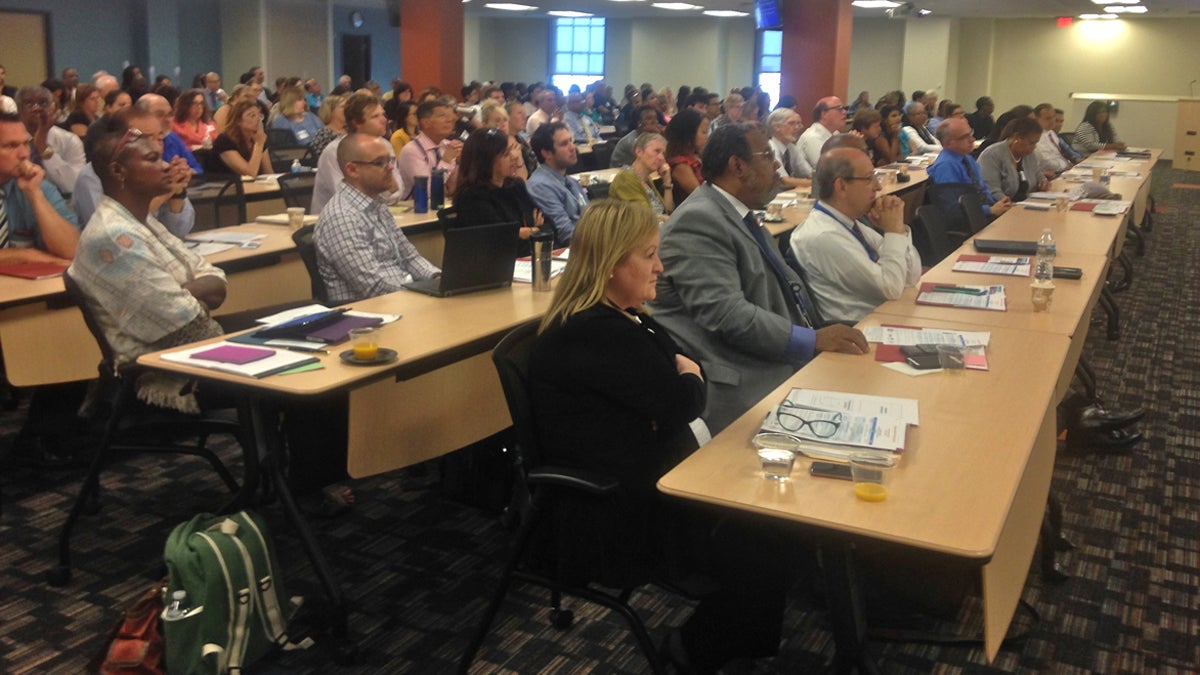At Philly summit, medical professionals discuss new approach to addiction

(Anne Hoffman/WHYY)
In 2015, more people died of opioid-related causes than by homicide in Philadelphia.
On Tuesday, more than 100 doctors and medical professionals made their way out to a summit to find out more about treating addiction with the drug buprenorphine.
Buprenorphine is an opioid itself — but it helps opioid users recover from their addiction. Originally intended to be used as a pain medication, it’s been available to treat opiate dependence for more than a decade.
“When you have buprenorphine on your opiate receptors on your brain, other opioids are unable to occupy those receptors. So it’s both a treatment, it’s also protective,” said Dr. Rose Julius, the deputy chief medical officer for Community Behavioral Health in Philadelphia.
She’d like to see more providers in the city offer the drug.
But some in the medical field have been resistant to using the drug because of stigma and a lack of awareness, she said.
“There’s a commonly held perception by many lay people and people outside of the addiction treatment world that addiction treatment does not work,” Julius said. “In fact, when you apply evidence-based treatment, people can and do recover.”
Traditional recovery methods, such as outpatient detox programs followed by drug-free treatment, can be dangerous, experts say. Buprenorphine can help people during a critical time because it curbs cravings, diminishes withdrawal symptoms and decreases the odds of an overdose. But experts caution it shouldn’t be used without accompanying treatment.
Dr. Brendan Youngman is the associate medical director at COMHAR Inc., a mental health facility in Kensington.
He came to the summit because he thinks a program with buprenorphine, also known by the trade name Suboxone, could be a better fit for some patients than methadone treatment.
“A lot of them want to take on jobs, or do other activities, and it kind of creates a barrier to that. Suboxone allows them to take the medication home, take it on a weekly basis,” he explained. At a time when opioid overdose deaths are climbing, Philadelphia officials are hoping to expand buprenorphine’s availability.
This year, officials predict there will be almost 850 overdose deaths in Philadelphia, up from 700 in 2015.
WHYY is your source for fact-based, in-depth journalism and information. As a nonprofit organization, we rely on financial support from readers like you. Please give today.

